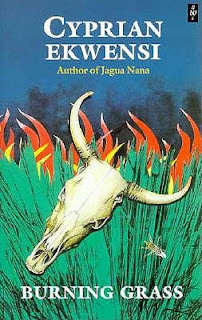140. Palace Walk by Naguib Mahfouz

Title: Palace Walk Author: Naguib Mahfouz Translators: William Maynard Hutchins and Olive E. Kenny Original Language: Arabic Genre: Fiction/Socio-political Publishers: Anchor Books Pages: 498 Year of First Publication: 1956 Country: Egypt Al-Sayyid Ahmad Abd al-Jawad is the head of the al-Sayyid household on Palace Walk. Ahmad, as he is commonly referred to, is not a man like others. He believes in strict moral uprightness, unwavering respect and obedience and greatly abhors any attempt to challenge his position as the head of the household either from his sons, daughters, or wife. Consequently, he is strict, stern, firm and irascible. And even in a culture where nothing is held in highest esteem than self-preservation and morality of women, he is considered by his friends as extreme. But Ahmad is a man of dual personality: with his friends he is jovial and friendly. He laughs heartily and is known to be a great orator. And when he is with his concubine, the ...








